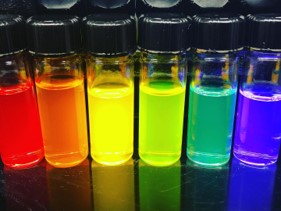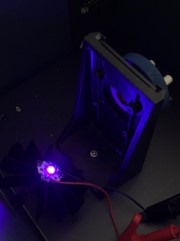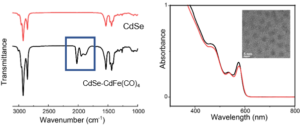Research in the Tsui group focuses on the synthesis of molecules and materials at the interface of bioinorganic and nanomaterials chemistry. Biological enzymes and heterogeneous catalysts are capable of activating very strong bonds in small molecules with high activity and specificity. We will incorporate structural or compositional motifs from enzymatic or heterogeneous active sites in the design of novel redox- or electrochemically-active transition metal complexes and nanoscale materials for optoelectronic, catalytic, and energy applications. An improved fundamental understanding of these systems will advance technologies for chemical and materials synthesis and energy storage.
Current Ongoing Projects:
Chalcogen Redox Chemistry
Polychalcogen species are involved in energy storage, biochemical redox processes, and organic sulfur transfer reactions. We are studying ways to use transition metals and other functional groups to control the reduction and transfer of sulfur and to form polysulfur-containing compounds.
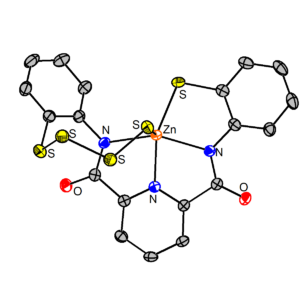
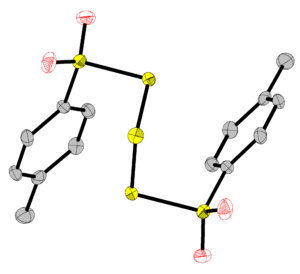
Quantum Dot Surface Chemistry
The high surface-to-volume ratio of nanomaterials makes the surface chemistry of nanocrystals have an outsize effect upon their properties, but studying the surfaces is challenging. We are currently using organometallic transition metal carbonyl complexes as spectroscopic reporters of quantum dot surface chemistry and as reaction centers for catalytic small molecule activation.
